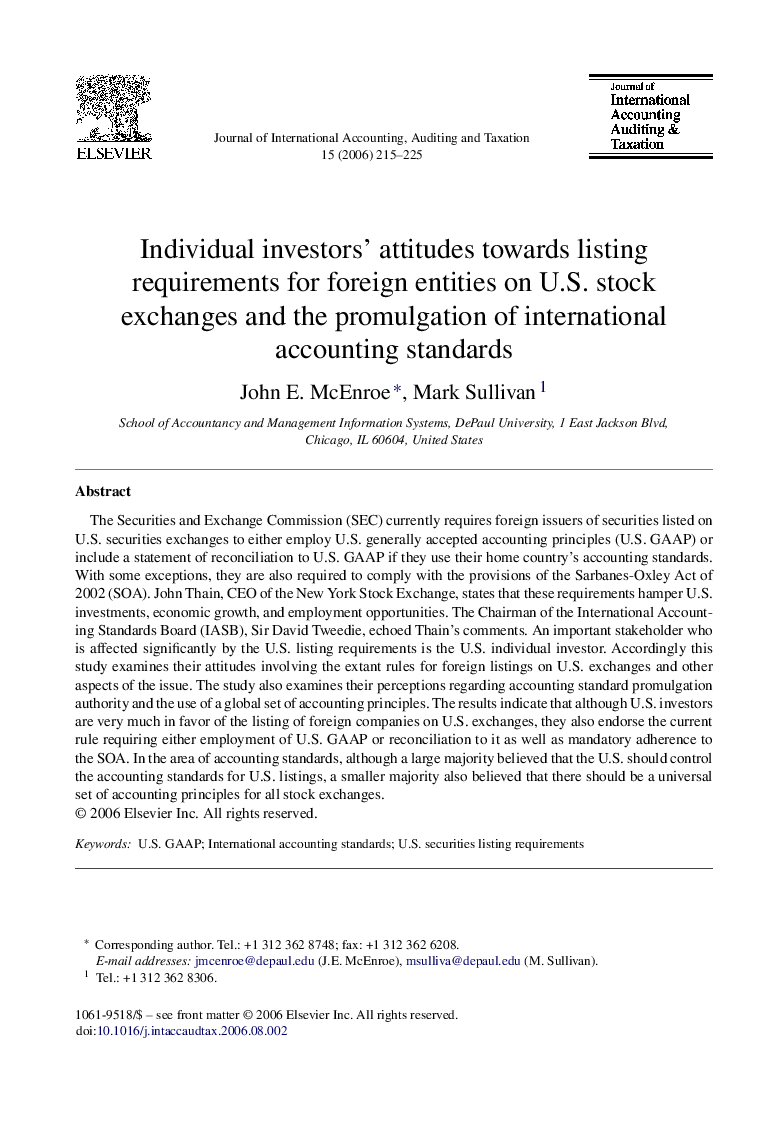| Article ID | Journal | Published Year | Pages | File Type |
|---|---|---|---|---|
| 1003253 | Journal of International Accounting, Auditing and Taxation | 2006 | 11 Pages |
The Securities and Exchange Commission (SEC) currently requires foreign issuers of securities listed on U.S. securities exchanges to either employ U.S. generally accepted accounting principles (U.S. GAAP) or include a statement of reconciliation to U.S. GAAP if they use their home country's accounting standards. With some exceptions, they are also required to comply with the provisions of the Sarbanes-Oxley Act of 2002 (SOA). John Thain, CEO of the New York Stock Exchange, states that these requirements hamper U.S. investments, economic growth, and employment opportunities. The Chairman of the International Accounting Standards Board (IASB), Sir David Tweedie, echoed Thain's comments. An important stakeholder who is affected significantly by the U.S. listing requirements is the U.S. individual investor. Accordingly this study examines their attitudes involving the extant rules for foreign listings on U.S. exchanges and other aspects of the issue. The study also examines their perceptions regarding accounting standard promulgation authority and the use of a global set of accounting principles. The results indicate that although U.S. investors are very much in favor of the listing of foreign companies on U.S. exchanges, they also endorse the current rule requiring either employment of U.S. GAAP or reconciliation to it as well as mandatory adherence to the SOA. In the area of accounting standards, although a large majority believed that the U.S. should control the accounting standards for U.S. listings, a smaller majority also believed that there should be a universal set of accounting principles for all stock exchanges.
